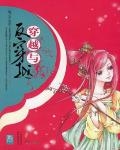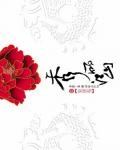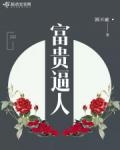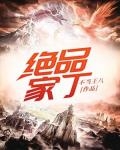Volume 3: The Land of Jingchu Chapter 265 Wuxi Barbarians
If you go further west at this point, you will basically reach the edge of the tribal distribution of the Wuxi barbarians, or the Wuling barbarians.
The nearby Guyue tribe often fought with the Wuxi tribe.
The Guyue tribe suddenly gathered 80% of its young men and women here, so the Wuxi tribe would naturally not be completely unresponsive...
On the first night that Chen Gong arrived at the Ancient Yue Alliance, the Hook Snake Tribe captured several people from Wuxi who came to spy!
The four people brought up were all men. Although they were captured, they still had fierce looks on their faces. Their dressing style was similar to that of the Shanyue people, but the materials used were mostly linen and silk rather than animal skins. At the same time, the battle patterns on their bodies were also obviously different.
The battle patterns of the ancient Yue people were mainly snakes, but the patterns of these four people... were basically all tigers!
The war pattern totem can be regarded as a small way to distinguish the descendants of the Yue people from those of the Ba people. The most common pattern among the Ba people is tiger pattern, followed by fish, duck, dragon and snake.
Cancong and Yufu, the founding of the country was at a loss - although the ancestor of Yufu Ba was once the ruler of the Ba people, the Baihu Ba is still the one whose culture is most completely passed down.
The Jing Man had already been beaten to a near-death struggle by the Chu State during the Spring and Autumn Period. Now, the barbarians in Jingzhou have basically been assimilated into the Baman style, and all use the "tiger" as their totem and battle pattern.
On the contrary, it is closer to the Nanzhong Barbarians, the homeland of the Ba people in the pre-Qin period, because it is very close to the settlement of the Qiang people. In addition to the tiger battle pattern, the most common pattern among the Nanzhong Barbarians is the sheep battle pattern of the Qiang tribe.
The Shanyue people, who lived further east and closer to the coast, also had tribes with birds as totems, probably influenced by the Dongyi culture. Ever since Huangdi's son Xuanxiao established tribes in the east, most of the eastern tribes used swallows and phoenixes as totems. The founder of the Shang Dynasty was a descendant of Xuanxiao, so the Shang also used the black bird as its battle pattern totem.
However, the so-called Shanyue in the east only worshipped birds as totems and did not have any bird war patterns, because there were only three Yue princesses left. Without the support of Yue princesses, those Shanyue who worshipped birds had no barbarian soldiers at all and naturally no war patterns.
It can also be seen from the totem battle patterns that, from the perspective of "Zhu Xia" and "Yi Di", although the people of the Han Dynasty were separated from the surrounding ethnic groups, from the perspective of the Three Sovereigns and Five Emperors and the descendants of Yan and Huang, whether it is the Ba and Yue in the south or the Xiongnu and Xianbei in the north, they can all be traced back to their relatives with the Three Sovereigns and Five Emperors.
It’s just that during the long Spring and Autumn Period and the Warring States Period, the Chinese civilization, with the Central Plains as its core, moved towards farming as a whole, and gradually lost its common language with the tribes that mainly relied on fishing, hunting and nomadism.
From the perspective of the world of Chengji, it is the Chengji in the Central Plains. Their functions are constantly optimized and transformed to adapt to agricultural civilization. They gradually stripped away the totem battle pattern system and turned to the system of battle armor and official seals...
At this time in the Shanyue Alliance’s headquarters, Gou Cang was interrogating several Wuxi people - compared to the Shanyue people, the Wuxi barbarians had more interactions with the Han people.
After seeing Chen Gong's attire, some men from Wuxi even shouted words like "insidious, traitor to the Han Dynasty, killing someone with a borrowed knife..."
Among the Shanyue, at least people with some status can speak some Chinese, and there are no more than a hundred people who can communicate normally. However, the Wuxi barbarians...even a scout can speak a few words?
"Have you brought the General's Mansion's suggestions?" Chen Gong asked the man who seemed to know some Chinese.
However, it was unknown whether the other party understood or not, and he just yelled, "The sinister Yang Yue, Jingfu will lead us to kill your women and take away your men!"
Chen Gong: ...
Chen Gong always felt that the other party didn't seem to have learned Chinese well, but... the meaning had been conveyed.
Chen Gong did not respond to this, but Gou Cang said, "Military Advisor Chen, it seems that the tribes of Wuxi have no intention of cooperating with the General's Mansion."
"The people of Wuxi have great confidence in their 'Jingfu'?" Chen Gong asked tentatively.
As for the situation of the Wuxi barbarians, these ancient Yue tribes should be more familiar with it, just like Chen Gong didn't know much about the situation .
"Jingfu" and "Zongshuai" are both rewards from the Han Dynasty. For these barbarians in the south, the Han Dynasty usually conferred titles on their leaders...
After all, in the early Western Han Dynasty, the population determined that the Han people in the south were sparsely populated and could not afford to interact too much with these barbarians. The strong national strength during the reign of Emperor Wu was used to defeat a larger enemy - the Huns.
After Emperor Wu, the Western Han Dynasty had been in a recovery period, and it would not have any thoughts about the barbarians in the south. As for the Eastern Han Dynasty... the eunuchs and relatives of the emperor took turns to be in power in the court, and the local aristocratic families were rampant. The Han Dynasty's ruling power over the local areas was weakening, so how could it have the mind to intervene in the southern barbarians?
Generally, the leaders of small tribes were given the title of "Qu Shuai". During the Yellow Turban Rebellion, local leaders also gave themselves this title. The leaders of large tribes were given the title of "Zong Shuai" in Yangzhou and "Jingfu" in Jingzhou.
Everything will be fine if they don't take the initiative to attack the counties, and they have no intention of assimilating them.
But... in Yangzhou, many of those small tribes are Han people who went up the mountain and called themselves Shanyue, but were actually mountain people who protected themselves. The leaders of these strong men were happy to call themselves "Qu Shuai".
But for tribes like these that are truly ancient Yue, they don’t even speak Chinese when communicating among themselves, so how could they possibly use the names given to them by the Han people?
The so-called "clan leader" and "headhunter" are just translated Chinese words. In their language, they mean "leader of the tribe" and "leader during hunting."
But now it seems that the situation of the Wuxi Barbarians is somewhat different. Not only do several of the "scouts" speak some Chinese, but they also call their leader "Jingfu", which shows that they are more sinicized!
Did I choose the wrong teammates?
Chen Gong looked at Xiu She obscurely...
"Their king, Mohuken, is insidious!" Gou Cang said angrily.
"Mohuken? Is there only this one Jingfu?" Chen Gong remembered that he had checked the official documents kept by Cheng Ji, and there should be three Jingfu and three Zongshuai.
"Three years ago, there were three. After Mo Kexian died, his son Mo Huken inherited the position of Jingfu. When he attacked the counties of the Han Dynasty during a meeting, he killed the other two Jingfu, annexed their tribes, and became the most insidious king of the Wuxi people." said Hook Snake.
After hearing his detailed explanation, Chen Gong finally understood...
A high degree of sinicization does not mean closeness to the Han Dynasty, it may also mean more ambition.
Mokexian, a smart man of the previous generation, was actually really close to the Han people, and even assisted the aristocratic families in the four counties of southern Jing in rebelling against Liu Biao - to some extent, this could also be considered as being close to the Han people... close to the Han people in southern Jing.
Therefore, Mokoxian did indeed secure a lot of benefits and resources for the tribe. There were even rumors that Mokoxian later became as decadent as the Han people, being arrogant, extravagant, and greedy for enjoyment.
Later, after Liu Biao put down the rebellion, Mo Kexian fled back to Wuxi in a hurry, but died on the way back. At the same time, Mo Huken inherited Jingfu's position.
First, he surrendered to the controller of Jingnan again, then rebelled again, and took advantage of the opportunity of the rebellion to attack his teammates and annex their tribes...
Compared to the ancient Yue tribe, the Wuxi barbarians are undoubtedly more powerful now.
"Speaking of this Mohuken, he actually understands you Han people better than us, but he also hates the way you Han people look more... Of course, I don't mean anything else, hahaha." Wangkong said deliberately at this time.
"Well, Liu Biao of Jingzhou is extremely greedy and has no ability to govern the country. He allows local tyrants to do whatever they want. The people of Wuxi in Jingzhou must be having a hard time, so we have to rescue them from suffering faster." Chen Gong responded with a smile.
"Even if Mo Huken unifies the Wuxi tribe, his numbers are less than ours, and the Wuxi people are not as brave as ours, so they are not to be feared." Mingtan seemed to have some understanding of the Wuxi tribe.
However...how much benefit did they gain when they participated in the Jingnan Rebellion? - Chen Gong was more concerned about this.
Whether it was the Shanyue people or the Wuxi people, because they were able to trade with the pseudo-Shanyue people who "turned mountains into copper", their per capita metal possession was not low, but their weapons were very crude, mainly heavy and blunt tools, and they did not have the technology to cast iron armor, so their armor was very simple.
In addition to food and fodder, Chen Gong also brought them weapons and equipment - of course, it was impossible to feed them directly.
There were a total of one thousand longbows, three thousand sets of lamellar armor, and ten thousand ring-handled swords, all of which were discarded from the General's Mansion.
If the Wuxi people had enough Han army equipment, even if it was not as good as the obsolete items from the General's Mansion, but could arm all of them, they would also be a force that could not be underestimated.
But Chen Gong did not ask, lest the Shanyue people ask for it...
As for whether the Shanyue people will pay the price for underestimating the enemy?
What does that have to do with Chen Gong...
Chen Gong's original intention was to let them fight each other, and then he and Zhang Liao would take the opportunity to send troops to southern Jing.
Morally... Chen Gong's cooperation with them was originally a price tag. You underestimated the enemy and caused damage. What does this have to do with the General's Mansion? The promised food and supplies have not been reduced for you.
"Mohuken has a younger brother, Shamoke, who needs attention." Gou Cang said at this time.
The Hook Snake Tribe seems to have frequent contact with the Wuxi people, and these "contacts" are not very friendly...
"Shamoke? Wait, don't their father and son have the surname Mo?" Chen Gong asked in some confusion.
"According to the customs of the Wuxi people, only the heirs who inherit the family business will inherit the surname. When Moko was alive, Shamoke was called Moshako, but after Mohuken became the leader, the surviving brothers also changed their names." Gou Cang said.
The few brothers who are still alive...
Well, it’s pretty bloody to see the succession process!
Chen Gong understood after thinking about it - Lao Jingfu died on his way back from the defeated army. In that situation, the issue of succession was indeed prone to confusion.
Wangkong said something to Gou Cang in a gibberish, and Chen Gong frowned, pretending not to understand. However... in fact, Chen Gong could already understand some key words. It should be saying that Shamoke was a loser and not worth worrying about.
"Shamoke is only fourteen or fifteen years old now. He was just a child at the beginning. Of course he could not defeat his brother. Moreover, his brain does not seem to be working well. Now the knife is in Mohuken's hand... Even if Xiyuan and Sitong from your tribe join forces, they are still no match for him with one hand!" Gou Cang reminded.
Chen Gong was relieved when he heard this. It turned out that he was just stronger in force...
Wang Kong laughed loudly, "Hahaha, a person without wisdom is not worthy of being called a strong person!"






